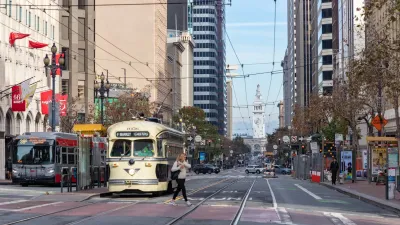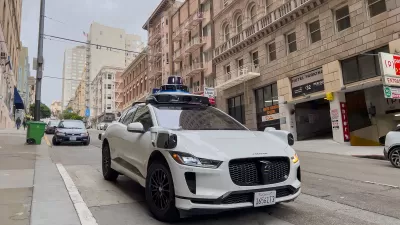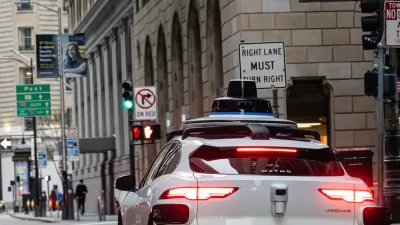While some driverless car companies have expanded operations in the past month, some industry observers caution that the business of autonomous vehicles remains stuck in neutral.
On April 7, the California Department of Motor Vehicles (CA DMV) issued a permit to Nuro "authorizing the company to test two driverless vehicles on surface streets within specific, designated parts of Santa Clara and San Mateo counties [in Northern California]," according to a CA DMV press release. Chris Teale reports the news of Nuro's new driverless presence on the streets of the Bay Area.
Nuro expanded driverless operations in Texas at the end of the year, testing driverless delivery services for Walmart. But when surveying the larger landscape of the industry, the company's latest advancements don't necessarily indicate that the coronavirus pandemic is accelerating the adoption of autonomous vehicles technology. The developments for the autonomous vehicle industry during the pandemic has been a mixed bag of good news and bad.
On one hand, Nuro isn't alone in getting a chance to expand its testing of autonomous vehicles operations in the last month of public health and economic crisis. The NAVYA project's autonomous vehicles were already testing in Florida, but the coronavirus has offered a chance for that company to expand operations to deliver medical supplies at the Mayo Clinic in Jacksonville, according to an article by Sebastian Blanco. Also, numerous writers have taken the temperature of the industry and read the crisis as an opportunity for autonomous vehicle technology. Here's a sample:
- Self-driving cars proving helpful during coronavirus lockdowns (Motor Authority, April 8, 2020)
- It took a coronavirus outbreak for self-driving cars to become more appealing (Mashable, April 1, 2020)
- Despite setbacks, coronavirus could hasten the adoption of autonomous vehicles and delivery robots (VentureBeat, March 20, 2020)
On the other hand, Waymo suspended its operation of autonomous vehicles at the outset of the crisis in March. An article by Joann Muller offers an opposing position to those expressed in the articles listed above, writing that the coronavirus has further revealed the lack of a viable business model for driverless technology.
FULL STORY: Coronavirus puts ambitious plans for self-driving cars on the shelf

Planetizen Federal Action Tracker
A weekly monitor of how Trump’s orders and actions are impacting planners and planning in America.

San Francisco's School District Spent $105M To Build Affordable Housing for Teachers — And That's Just the Beginning
SFUSD joins a growing list of school districts using their land holdings to address housing affordability challenges faced by their own employees.

The Tiny, Adorable $7,000 Car Turning Japan Onto EVs
The single seat Mibot charges from a regular plug as quickly as an iPad, and is about half the price of an average EV.

Seattle's Plan for Adopting Driverless Cars
Equity, safety, accessibility and affordability are front of mind as the city prepares for robotaxis and other autonomous vehicles.

As Trump Phases Out FEMA, Is It Time to Flee the Floodplains?
With less federal funding available for disaster relief efforts, the need to relocate at-risk communities is more urgent than ever.

With Protected Lanes, 460% More People Commute by Bike
For those needing more ammo, more data proving what we already knew is here.
Urban Design for Planners 1: Software Tools
This six-course series explores essential urban design concepts using open source software and equips planners with the tools they need to participate fully in the urban design process.
Planning for Universal Design
Learn the tools for implementing Universal Design in planning regulations.
Smith Gee Studio
City of Charlotte
City of Camden Redevelopment Agency
City of Astoria
Transportation Research & Education Center (TREC) at Portland State University
US High Speed Rail Association
City of Camden Redevelopment Agency
Municipality of Princeton (NJ)





























